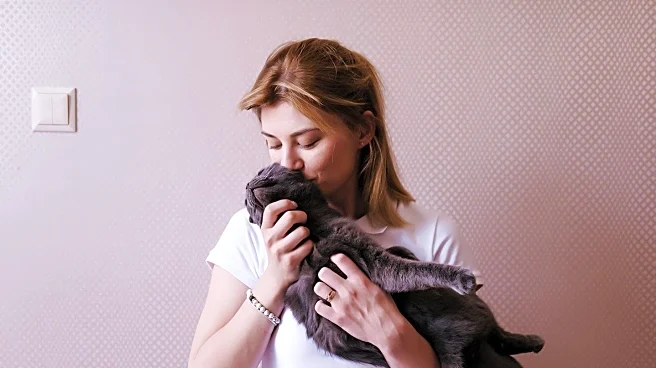What's Happening?
Recent studies have revealed the significant role of oxytocin, often called the love hormone, in fostering bonds between cats and humans. Oxytocin, known for its role in social bonding and stress regulation, is released during interactions such as petting and cuddling. Research indicates that these interactions can elevate oxytocin levels in both cats and their owners, promoting feelings of trust and companionship. The studies suggest that understanding and respecting a cat's comfort level is crucial for enhancing this bond.
Why It's Important?
The findings underscore the importance of oxytocin in human-animal relationships, offering insights into how pet ownership can contribute to emotional well-being. The research highlights the potential for pets to serve as buffers against stress and anxiety, similar to human social support. Understanding the chemical basis of these interactions can inform approaches to pet care and enhance the quality of life for both pets and owners. The studies also challenge perceptions of cats as less affectionate than dogs, emphasizing the unique ways cats express trust and companionship.
Beyond the Headlines
The research on oxytocin in cat-human bonding may influence broader discussions on animal welfare and the ethical treatment of pets. It highlights the need for pet owners to be attuned to their animals' emotional cues and comfort levels, fostering healthier and more respectful relationships. The studies may also inspire further exploration into the neurochemical basis of human-animal interactions, potentially impacting fields such as psychology and veterinary science.









